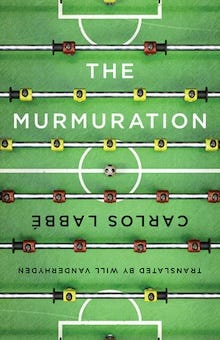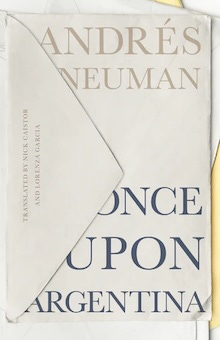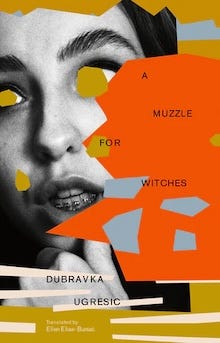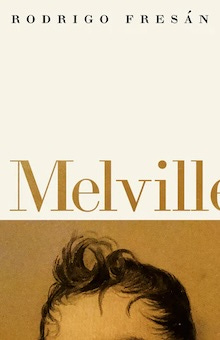Open Letter December Highlights
Leaving 2024 with a bang . . . features, lists, new poetry, and more
World Literature Today’s “75 Notable Translations of 2024”
Thanks to the good people at World Literature Today for including not one, not two, but three Open Letter titles on their list of “75 Notable Translations of 2024.” This list is one of the few that I pay attention to every year, given the range and quality of the books that are included on it. (No lie that I added 10 books to my “to read” list thanks to this—and am particularly interested in seeing why “Book II” of Solvej Balle’s On the Calculation of Volume was included, but not “Book I” . . . )
Congrats to all translators and authors included, and special shout out to the Open Letter titles on the list:
The Mumuration by Carlos Labbé & Will Vanderhyden
On the eve of the 1962 World Cup in Chile, a retired sports commentator with a secret ability to influence living beings with his voice encounters one of the directors of the Chilean national team—a feminist with a covert agenda—on an overnight train ride to Santiago. The director convinces the commentator to return to broadcasting in order to call Chile's matches and to utilize his unique vocal power to influence their outcomes.
Later, when Chile is facing off against Brazil in the semifinal match, the plan diverges from one of conventional victory and the narrative bifurcates, simultaneously tracking the action on the field and a startling sequence of events that is unfolding in one of the stadium’s luxury boxes, and what initially looks like a story of intrigue and action and an exploration of class warfare, representation, and social justice, emerges as a novel that enacts the notion that art can only transcend through collective creative action.
Once Upon Argentina by Andrés Neuman & Nick Caistor & Lorenza Garcia
Once Upon Argentina relates the lives of the narrator’s relatives—a group of people from all over the world gathered in a land where immigrant traditions merge and thrive. The lives of these relatives intersect, like a set of Matryoshka dolls or a hall of mirrors, as the personal and social stories of twentieth century Argentina converge.
Beyond these tales of hardship and triumph, Andrés Neuman’s novel experiments with the nature of the autobiography, encompassing prenatal memories, expanding the autofiction genre with a new voice and twist. Merging present and past, collective experiences and his own, the narrator explores a genealogy populated by unforgettable characters, offering us the story of the construction of a country, his Argentine childhood, and his early literary discoveries.
A Muzzle for Witches by Dubravka Ugresic & Ellen Elias-Bursać
As with the rest of her literary career, Dubravka Ugresic's final work, A Muzzle for Witches, is uncategorizable. On its surface, the book is a conversation with the literary critic Merima Omeragić, covering topics such as "Women and the Male Perspective," "The Culture of (Self)Harm," and "The Melancholy of Vanishing."
But the book is more than a simple interview: It's a roadmap of the literary world, exploring the past century and all of its violence and turmoil—especially in Yugoslavia, Ugresic's birth country—and providing a direction for the future of feminist writing.
One of the greatest thinkers of the past hundred years, Ugresic was one-of-a-kind, who novels and literary essays pushed the bounds of form and content, and A Muzzle for Witches offers the chance to see her at her most raw, and most playful.
Now Available: Three Demons: A Study on Sanki Saitō’s Haiku by Sanki Saitō & Ryan Choi
The most recent addition to Open Letter’s poetry series—which is edited by Anastasia Nikolis, a fantastic writer and poet in her own right—is Three Demons by Sanki Saitō & Ryan Choi.
Over the years, we’ve done a number of incredible poetry collections (Lodgings by Andrzej Sosnowski & Benjamin Paloff; Catcalling by Lee Soho & Soje; and Dark Times Filled with Light by Juan Gelman & Hardie St. Martin; and When We Leave Each Other by Henrik Nodbrandt & Patrick Phillips come to mind), and Three Demons is a fascinating addition to this series.
Substack is great at a lot of things, but formatting poetry is not one of them (to the best of my limited knowledge), so I highly recommend checking out the excerpts that can be found at Poets.org, Kenyon Review, and The Spectacle.
One of the first things you’ll likely notice is that these aren’t typeset like traditional haiku with three lines consisting of five, seven, then five syllables. Ryan Choi addresses this in a brief interview he did for Kenyon Review:
As separate haiku, how do these pieces work together? What happens when they are arranged back to back and do you feel they contribute to one another’s meaning-making?
My formatting is no less orderly, or rigorous, than the standard. As in all set forms—contents aside—haiku concerns one subject, the form itself as mode of perception, a container to catch the cosmos.
In translating these pieces, what were you determined to preserve and emphasize? What drew you to translate this work in the first place?
I was literal in my approach to the original images and their facts, but liberal—irreverent even—in how I laid them out and discarded the syllabic rules that traditionally govern haiku. When does one finally leave the form?
And Sanki Saitō himself has a fascinating backstory. From Choi’s introduction to another excerpt at the Harvard Review:
In 1925, the year of his graduation from dental school and his marriage to Shigeko Uehara, Keichoku Saitō emigrated with his wife to British Singapore at the invitation of his brother, Takeo, twenty years his senior and the family head since their father’s death in 1906; rather than tending to his fledgling career, however, the profligate younger Saitō (born 1900) reveled in the city’s cosmopolitan culture, hosting extravagant soirées at the building his brother had purchased for him as a wedding gift, taking up golf and ballroom dance, making foreign friends and taking a string of lovers, all to his brother’s disapproval. Only three years later, sick with typhus and already bankrupt, Saitō was forced to return to Japan amidst Singapore’s growing recession and a rise in anti-Japanese sentiment precipitated by the hostilities of the Imperial Japanese Army in China.
Soon after a colleague convinced him to start writing haiku—prompting him to take the nom de plume “Sanki” (which means “three demons,” hence the title of the collection)—he found success writing for Kyōdai Haiku and became well-known for being a bit of a rebel.
As a testament to his maverick reputation, he was imprisoned in 1940 during the government’s World War II persecution of avant-garde artists, and was officially forbidden to write, being deemed especially pernicious for his perversion of traditional literary forms: in his body of work, which resists simple summary, the classical moraic rules and kireji (punctuative expressions) are often intact; the seasonal references (kigo) are neither religiously heeded nor scrupulously avoided; and he tended to write in thematic sequences instead of stand-alone units. Once he was freed from prison, Sanki, obedient to the will of the government, relinquished literature. He abandoned his wife and son in 1942 and moved to the port city of Kobe, living first in a crumbling hotel and later in a dilapidated occidental mansion in the hills, regularly receiving visits from friends, lovers, and admirers.
Fascinating poet; fascinating approach to translation. And, once again, available now from better bookstores everywhere and the Open Letter website.
The Two Month Review Podcast Tackles Rodrigo Fresán’s Melvill
As you may have noticed, the Two Month Review (Apple, Spotify, YouTube) recently wrapped its discussion of Herman Melville’s The Confidence-Man: His Masquerade (although the “Grifters Gonna Grift” t-shirt is still available) and has moved on to pod-favorite Rodrigo Fresán’s novel about Herman and his father Alan.
Translated by Will Vanderhyden (mentioned above for his work on Carlos Labbé’s brilliant, The Murmuration), this is a sort of historical novel, sort of vampire novel about how stories get invented. It’s got all the typical hallmarks of a Fresán book: brilliant, quotable sentences; literary and cultural references; a deep interest in the origins of creativity and the value of the written medium; and a significant number of footnotes.1
Tune in! This promises to be a fun and funny season—perfect for the holidays! In fact, the first episode dropped last week and featured Will Vanderhyden. (Fresán will guest star on the final episode.)
Open Letter’s “Translator Triptychs” Featured in Rochester’s City Magazine
Very proud to appear in Rochester, NY’s own City magazine this month in a lengthy piece by Justin Murphy (who was recently a guest on the Three Percent podcast with local writer and translator K. E. Semmel) that focused on our “Translator Triptych” program. This started a few summers ago when three works by Spanish female writers, selected and translated by Katie Whittemore, came out in the same month, and continued this summer with Janet Hong’s triptych focusing on Korean literature, and will continue in March 2025 with Kaija Straumanis’s Latvian triptych, and summer 2026 with Lytton Smith’s Icelandic one.
Here’s a bit from the piece:
“Without Open Letter you wouldn’t have the contemporary translation scene; it’s been landscape-defining,” said Smith, who has translated several books from Icelandic for the press. “There are presses that deserve a lot of credit for having been working for decades, but what Chad and Open Letter are doing is (asking the question): ‘Why aren’t we reading more in translation?’”
Among those efforts over the last 17 years: a first-of-its-kind database of all literature translated into English; a national award for translated literature; and the Three Percent podcast, named after the percentage of books released in the United States each year that were first published in other languages.
Rochester has twice hosted the American Literary Translators Association conference, most recently in 2019. And Open Letter publishes 10 books each year, many from authors whose work has not yet appeared in English.
“If you (work) in translation, everybody knows Chad,” Hong said. [Ed. Note: Blushing.] “Even though it’s a smaller press, over the years the passion and the sheer knowledge he has with translated literature—that’s what Open Letter is.”
And again, all these books are available at better bookstores across the nation, and via the Open Letter website.
That’s all for now! Happy holidays everyone!!
So, there is an errata in the first printing of Melvill, which has since been corrected. If you have this version though, the second footnote on page 38 is unintentionally cut off. Here’s how it should read in full:
And, sure, I was born in New York City, on August 1st, 1819, at 11:30 p.m., at number 6 Pearl St.; but New York is an island and, as such, its shores are not really shores—they are borders. I note here the day and time of my birth, so many years later, on the same day and time; and I do so with the same exactitude with which I once interrupted the navigation of the novel that now nobody remembers but for which, ’twas ever thus, I’ll be most remembered, no longer for having been that curiosity of “the man who lived among cannibals.” There, in Chapter 85, entitled “The Fountain,” my shadow falling across my desk is like a cloud over that sea where a singular whale is being hunted. And, from on high and at that high point in the novel, I also informed its eventual and, at the time, scarce first readers what the precise instant, the exact and blessed minute suspended between parentheses, was when I put those words into writing on the page: “(fifteen and a quarter minutes past one o’clock p.m of this sixteenth day of December, a.d. 1850)”. Yes: me then and thenceforth and forever like a humble deus ex machina who settled for offering the time and date, as if drinking down a deep breath and chewing up his courage before the final duel and the absolute shipwreck that only one will survive so he can live to tell the tale in that novel.






Re: Balle's On the Calculation of Volume—The first book states the theme/conundrum, whereas the second book begins explore the novel ways in which a single day in autumn can be exploited to re-create a year with well-defined seasons. I'll toot my own tin horn here with a link to my review of books 1 & 2 (2nd review down): https://www.thebookbeat.com/backroom/2024/11/23/i-arrogantly-recommend-by-tom-bowden-51/